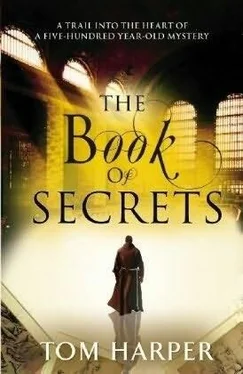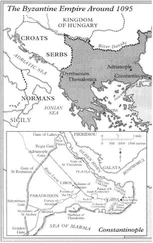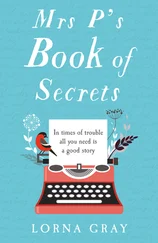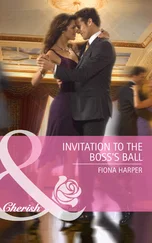Nick checked his online security. Everything showed green. The website didn’t seem to be trying to download any kind of malware.
He had to risk it. He lifted up the hotel phone and dialled the number shown on the website. There was a delay, then the foreign bleep of a distant telephone.
‘Jersey Paints,’ said a New Zealand-accented voice.
‘Uh, hi. Is Olaf there?’
An exasperated silence. ‘Is this some kind of joke? I’ve told you three times already there’s no Olaf here. Would you please stop calling?’
‘Sorry,’ said Nick.
The moment he hung up a wave of guilt overwhelmed him. He shouldn’t have called, shouldn’t even have looked at the website. Certainly shouldn’t have rung from the hotel. I’ve told you three times already. Somebody else had read the message and acted on it.
There was a noise at the door. He froze. Had they come already; had they traced him that easily? From the corridor, he heard the rasp of a key card sliding into the lock. He looked wildly to the window – but it was screwed shut.
The light on the lock went green. With a click, the handle began to turn.
There was nowhere to hide: even the bathroom was down the hall. Nick grabbed his bag with the book and the card inside it. Maybe he could push past the intruder, knock him down and escape.
What if there was more than one of them?
The door swung open. Emily stood in the dimly lit corridor carrying two shopping bags, her hair damp from melting snow. She looked at the bag in his hands.
‘Were you going out?’
Nick slumped on the bed in relief. ‘I thought… I was just making sure the book was still safe.’ He looked at her again, noticing something different. ‘You’ve changed.’
She put down the shopping bags and hung her coat on the back of the door. The skirt she’d been wearing since Paris was gone, replaced by a tight rollneck sweater and figure-hugging jeans. It was the first time he’d seen her not wearing a skirt, let alone in jeans. Part of him was almost embarrassed by it, like running into your teacher in the grocery store at the weekend. Part of him was struck by how good she looked.
‘I thought trousers would be better if we need to run away again,’ she said coolly.
She pulled off her ankle boots and flopped down on the bed next to Nick. Once again, the hotel staff had given them a double when they’d asked for a twin. They lay there side by side, like a married couple in an old movie. To Nick’s surprise, it was strangely comfortable.
‘The snow’s getting heavier outside,’ she said after a moment. ‘We might struggle to get out of Strasbourg.’
‘If we had anywhere to go.’ Nick leaned over and found the TV remote on the bedside table. He turned it on and flipped through the line-up of French game shows and chat shows until he found an English-language news channel. A reporter in a flak jacket was standing in a scorched landscape, while soldiers in hues of brown and tan searched a mud-brick house behind him. It looked like a godforsaken place, but at least it was hot. Nick felt he’d been stumbling around in the cold for half a lifetime.
He muted the TV, letting the images play out in dumbshow in the background.
‘I went back on Gillian’s web page,’ he said. ‘Someone left a message for her.’
Emily didn’t reply. He looked down and saw that she’d fallen asleep. Her eyes were closed, her pale skin framed by the dark hair fanned out on the pillow. He pulled the blanket at the foot of the bed over her shoulders. She murmured something in her sleep and rolled over, burying herself against his side.
Her body was warm against him. Nick felt the heat spreading through his skin, melting the sheet ice that had been encasing him since Gillian’s message first appeared on his desktop. He knew it was a mistake; that when she woke up she’d be embarrassed and he’d be ashamed. But he didn’t want to disturb her. He’d let her stay, for a while.
He turned his eyes back to the television, reading the captions and watching the silent parade of spokesmen, sportsmen, apologists and starlets on the far side of the glass wall. Not so long ago they’d seemed so important to him, heroes and villains and storylines played out in the media. Now they seemed a world away.
The picture cut back to the news anchor in the studio. A new caption had appeared on screen: DISGRACED JESUIT FOUND MURDERED.
Nick reached for the remote and turned up the volume. Emily stirred at the sudden movement. The anchor disappeared, replaced by a grainy mugshot. Nick stared. The man standing too close to the camera, holding the letter-board…
‘That’s Brother Jerome.’ Emily sat up, brushing the hair back from her face.
The reporter’s voiceover droned on through his shock. ‘Neighbours heard gunshots… Police called to the house… Mafia-style execution… Suspicious car reported early this morning… Brilliant scholar… Sex-abuse scandal…’
Nick looked at Emily. Tears were streaming down her cheeks. He wanted to comfort her but she looked so fragile, like she’d shatter if he touched her.
‘I killed him,’ she whispered.
Back on the television, the story had finished and a new one begun, Brother Jerome’s face replaced with a boatload of shivering refugees. Nick muted it again.
‘You had no way of knowing,’ he murmured.
‘I destroyed him.’
‘I know how you feel,’ Nick tried. ‘It’s like Bret. If it wasn’t for me, he’d be alive. It’s like poison inside me. But you can’t think that way. It’s the guys who killed him who are responsible.’
‘I’m responsible,’ she insisted. ‘He wouldn’t have been there if it wasn’t for me.’
‘Because he tried to take advantage of you when you were a student?’
Emily gulped back some tears and stared at the bedspread. Then, just when he thought she hadn’t heard, she said very quickly, ‘It wasn’t his fault. Jerome and I – we had – we were lovers. He didn’t just make a pass at me; we had an affair. When the university found out they fired him, and he was expelled from his order. It destroyed him. Academia was his life.’
Nick thought of the old man with his mop of white hair and tried not to imagine his scrawny hands crawling over Emily’s skin. ‘He still should never have touched you.’
‘He should never have touched me,’ she repeated. ‘That’s right. But not the way you think. I fell in love with him. I seduced him, if that’s the right word. I was infatuated, relentless; I wouldn’t take no for an answer. I didn’t realise what I was doing.’ She wiped a tear from her face. ‘Eventually the guilt got too much for him and he broke it off. I was so angry with him, all I wanted was revenge. I reported him out of sheer spite. I destroyed his life. And now this.’
Strassburg
I examined the paper with the familiar ache of broken hopes. Some of the letters had barely registered; others had pressed so hard that blots of ink drowned the characters. In several places the paper had torn where we had not smoothed the edges of the cast metal forms. The whole sheet had smudged badly when we removed it from the press. Drach had been right: I could press ten thousand copies of this and it would still be ugly.
I picked up a file, resigned to another afternoon of thankless labour. Casting the metal form from the engraved copper plate had been easy, but I had not anticipated the fine accuracy that would be needed. If any letter stood even a hair’s breadth lower than the others it would hardly touch the page. The same amount too high and it would crush the paper with ink. As the letters were created by hammering a steel punch into the copper, it was all but impossible to make them a uniform height except by the most meticulous filing.
Читать дальше












